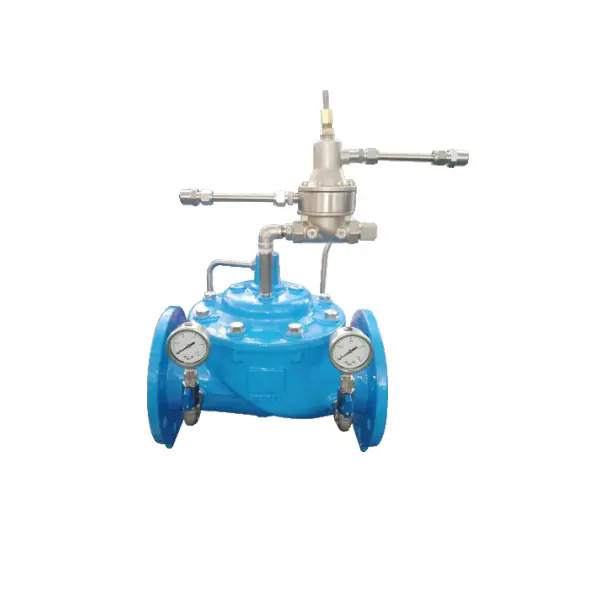What Makes Water Control Valves the Key to Efficient Fluid Management and Future Industrial Sustainability?
2025-10-21
Water control valves play an indispensable role in regulating, directing, and controlling the flow of water across a wide range of applications — from municipal systems to industrial production lines. These devices are designed to maintain optimal flow rates, pressure levels, and distribution accuracy, ensuring that every part of a water system performs efficiently and safely.
In modern industries, water control valves have evolved far beyond simple mechanical regulators. They are now part of smart systems that monitor and adjust water usage dynamically, integrating with IoT sensors and automated control networks to ensure energy efficiency and sustainability.
Below is a professional overview of key product specifications often used in high-quality industrial-grade water control valves:
| Parameter | Specification |
|---|---|
| Material Options | Brass, Stainless Steel, Ductile Iron, PVC |
| Nominal Diameter (DN) | DN15–DN1200 |
| Pressure Rating | PN10–PN40 (10–40 bar) |
| Temperature Range | -10°C to 180°C |
| Connection Type | Flanged, Threaded, Grooved, Wafer |
| Control Mechanism | Manual, Pneumatic, Hydraulic, or Electric Actuation |
| Flow Characteristics | Linear, Equal Percentage, Quick Opening |
| Seal Type | EPDM, PTFE, NBR |
| Certifications | ISO9001, CE, WRAS, NSF |
These specifications ensure that valves perform consistently under varying conditions, providing both durability and adaptability. Selecting the right valve type and material is crucial for achieving long-term efficiency and minimal maintenance.
Why Water Control Valves Are Essential for Modern Water Systems
Water scarcity and environmental regulations have pushed industries toward smarter, more sustainable water management practices. The water control valve is at the heart of this transformation.
Precision Flow and Pressure Management
Maintaining consistent flow and pressure is vital in any system — whether it’s a municipal water network or a high-pressure industrial line. A control valve adjusts automatically to match fluctuating demand, ensuring that pressure surges, cavitation, and flow inconsistencies are minimized.
Energy and Cost Efficiency
A well-engineered valve minimizes unnecessary water loss and reduces pump load, which in turn cuts energy consumption. Over time, the savings in electricity and maintenance costs significantly outweigh the initial investment.
Safety and System Integrity
In industrial and chemical processing plants, uncontrolled pressure or flow can lead to severe damage or safety hazards. Water control valves protect pipelines, pumps, and connected components by responding rapidly to changes in flow or system pressure.
Environmental Impact
Modern control valves help industries reduce water waste and energy usage, aligning with global sustainability goals. With improved efficiency, facilities can lower carbon footprints and comply with environmental standards without sacrificing productivity.
How Water Control Valves Work and Their Core Functionalities
To understand how a water control valve operates, one must look at both its structure and its automation logic.
A typical water control valve consists of a body, bonnet, actuator, and a flow control element (such as a disc, ball, or plug). The actuator, which can be manual or automated, modulates the position of the flow element to adjust the water flow rate or pressure.
Key Operating Principles:
-
Sensing and Feedback: Pressure or flow sensors detect system conditions and send signals to the actuator.
-
Control Signal Interpretation: Based on a pre-set algorithm or manual command, the valve adjusts its opening to maintain the desired flow rate or pressure.
-
Modulation: The valve continuously adjusts its position to compensate for fluctuations in the system, ensuring steady performance.
-
Safety Overrides: In emergency situations, such as sudden pressure surges or power loss, the valve can automatically close or open to prevent damage.
Advanced Functional Features:
-
Remote Control Capability: Integration with IoT systems allows real-time monitoring and adjustment from central control rooms.
-
Self-Diagnostic Functions: Modern valves detect leaks, corrosion, or wear automatically, notifying operators before a fault occurs.
-
Energy Optimization: Smart control algorithms help minimize unnecessary actuation, extending equipment lifespan.
-
Noise and Vibration Reduction: Precision-engineered flow paths reduce turbulence, ensuring quiet and stable operation.
By combining mechanical precision with intelligent control, water control valves provide stable, safe, and efficient water regulation, enabling industries to achieve performance targets while maintaining system reliability.
The Future of Water Control Valves and Industrial Sustainability
As industries move toward digital transformation, the future of water control valves lies in automation, data integration, and sustainable design. The global demand for efficient water management is projected to grow sharply, driven by urbanization, climate change, and industrial automation trends.
Smart Technology Integration
Valves are increasingly equipped with sensors that monitor pressure, temperature, and flow rate in real time. These data points are transmitted to centralized systems for predictive maintenance and performance optimization. Artificial intelligence algorithms can then analyze these patterns to predict potential failures before they occur.
Materials and Design Evolution
The development of corrosion-resistant alloys, eco-friendly composites, and lightweight materials is enhancing valve durability and recyclability. Manufacturers are now focusing on designs that reduce fluid resistance and leakage, contributing to better overall energy efficiency.
Role in Sustainable Infrastructure
Water control valves are fundamental components in smart cities and green industrial systems. Their ability to reduce water loss and energy use makes them integral to achieving long-term environmental sustainability.
Industry Forecast
According to market research, the global market for smart water control valves is expected to expand rapidly over the next decade, driven by water scarcity concerns and industrial automation. This shift underscores how critical valve technology will be in the future of water resource management.
Common Questions About Water Control Valves
Q1: How can a water control valve improve system efficiency in industrial applications?
A high-quality control valve minimizes pressure loss, stabilizes flow, and prevents energy waste by maintaining the optimal flow rate. In automated systems, it allows precise real-time adjustments, reducing pump workload and maintenance costs. Over time, this enhances productivity while lowering operational expenses.
Q2: What factors should be considered when selecting a water control valve?
Key considerations include the operating pressure, temperature range, fluid characteristics, connection type, and desired level of automation. Material selection is also vital — stainless steel suits high-pressure systems, while PVC or brass may be ideal for lighter-duty or chemical applications. Proper valve sizing ensures stable flow without unnecessary wear or turbulence.
Building the Future of Water Management with Taian
As the global demand for efficient water systems continues to grow, water control valves remain central to innovation, safety, and sustainability. From precision flow regulation to smart automation, these valves support the reliable operation of everything from urban water supply networks to complex industrial systems.
The ongoing development of smart technologies, eco-conscious materials, and predictive maintenance capabilities will redefine how industries manage water in the coming decades. Companies that invest in advanced valve solutions today will be the ones leading in operational efficiency and environmental responsibility tomorrow.
Taian is committed to advancing this mission by delivering high-performance water control valves designed for durability, intelligence, and sustainability. To learn more about our innovative solutions and how they can enhance your system’s efficiency, contact us for professional consultation and technical support.



